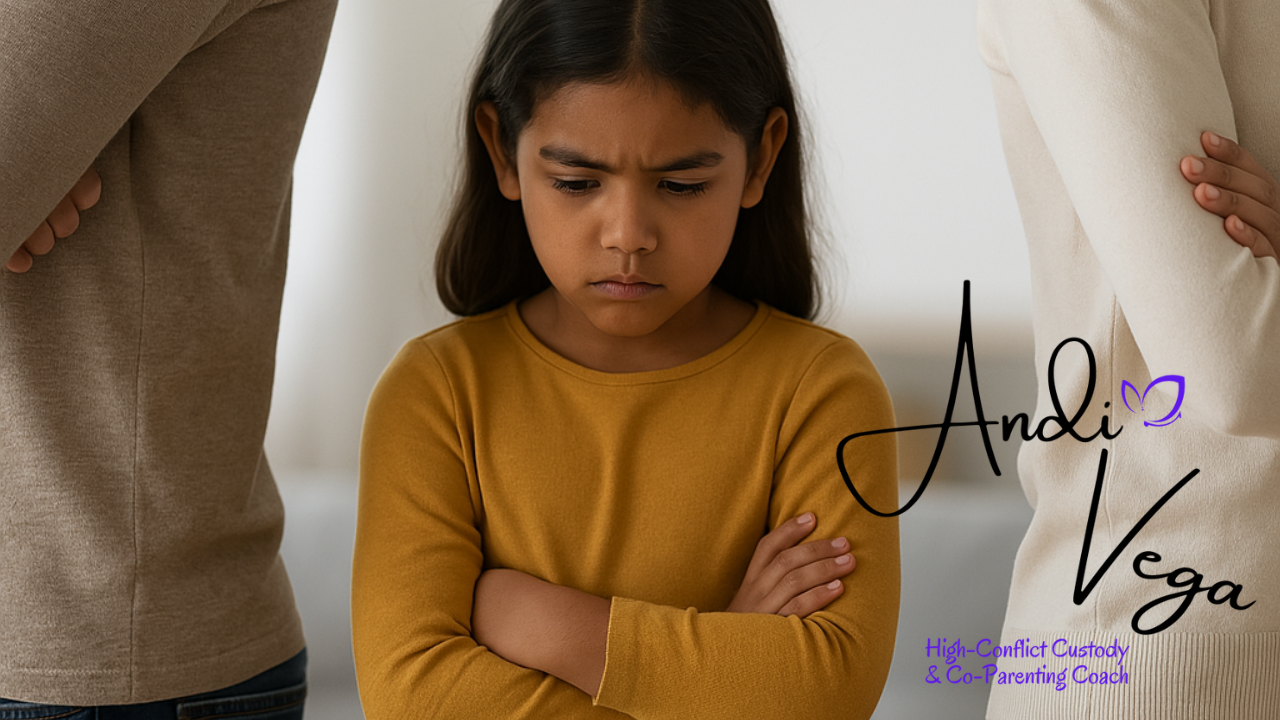Andrea David Vega Explains: What Is Considered High Conflict Co-Parenting?
Apr 07, 2025
It starts with a single text: “You’re late again.” Suddenly, you’re flooded with frustration, your stomach tightens, and you brace yourself for what’s next. The conversation spirals into accusations, defensiveness, and silence. You wonder how something as simple as pick-up time can feel like a battlefield.
If this feels familiar, you’re not alone. For many divorced or separated parents, co-parenting isn’t just about managing logistics, it’s about navigating emotional landmines. And when disagreements become patterns, communication turns toxic, or tension never lets up, you may be in what’s known as a high conflict co-parenting dynamic.
High conflict co-parenting occurs when separated or divorced parents experience ongoing, intense conflict that disrupts communication, decision-making, and the ability to prioritize the child’s well-being. This type of dynamic often includes:
Frequent arguments and blaming
Refusal to cooperate or compromise
Ongoing litigation or threats of legal action
Undermining or badmouthing the other parent
Involving the child in adult issues or pressuring them to take sides
Unlike normal disagreements that arise occasionally, high conflict co-parenting is marked by a persistent inability to resolve disputes in a respectful, child-centered manner. It’s not just a tough season, it’s a pattern.
Children in these environments may feel caught in the middle, anxious about transitions between homes, or even responsible for managing the parents' emotions. Over time, this can impact their emotional development and sense of security.
Why Does It Happen?
High conflict co-parenting often stems from unresolved hurt, personality clashes, or power struggles that existed before the separation and continue afterward. In some cases, one or both parents may have difficulty with emotional regulation, lack communication tools, or feel a deep mistrust that makes collaboration nearly impossible. The conflict can also be fueled by differing parenting values, mental health issues, or a history of abuse or control.
But no matter the root cause, one thing is clear: staying stuck in this cycle benefits no one, especially not your child.
Three Practical Strategies to Reduce Conflict and Regain Control
1. Create a Written Parenting Plan With Built-In Boundaries
Clear expectations reduce conflict. A detailed, written parenting plan that outlines schedules, responsibilities, and communication guidelines removes guesswork and minimizes reasons to argue. Use shared calendars or co-parenting apps to stay organized and avoid unnecessary direct contact.
Pro tip: Include boundaries around communication such as only discussing parenting matters, setting time frames for responses, and using neutral, factual language.
2. Shift Communication to Business Like Interactions
Treat co-parenting communication like you would with a coworker you don’t get along with: polite, professional, and focused on the task. The BIFF method (Brief, Informative, Friendly, Firm) is a great tool to manage tone and content.
Example: Instead of “You’re always late. Don’t you care about your child?”
Try: “Pick-up was scheduled for 3:00 PM. Please confirm next week’s timing by Friday at noon.”
3. Get Support, You Don’t Have to Do It Alone
High conflict co-parenting can feel isolating, but there are tools and professionals who can help. A co-parenting coach, family therapist, or mediator can help you build strategies, gain clarity, and reduce stress. Focus on what you can control. Focus on your mindset, your reactions, and your approach.
And if the situation is severe such as involving abuse, manipulation, or legal threats, document everything and consult legal or mental health professionals trained in high-conflict dynamics.
You Deserve Peace and So Does Your Child
High conflict co-parenting is exhausting, but it does not have to last forever. The goal is not to change the other parent, it’s to protect your peace, model emotional regulation for your child, and create a stable path forward.
Even small steps like improving communication or setting healthy boundaries can make a big difference. Remember: your child doesn’t need perfect parents. They need parents who are trying, healing, and committed to creating a safe, calm world around them.
Let Me Support Your Co-Parenting Journey.
Get expert guidance on reducing conflict, improving communication, and creating stability for your children. Schedule a free 15 minute strategy call to discuss your specific situation.
Stay Connected With News And Updates!
Join our mailing list to receive the latest co-parenting strategies, documentation tips, and communication techniques that can transform your high-conflict situation.
Don't worry, your information will never be shared.
We hate SPAM. We will never sell your information, for any reason.

